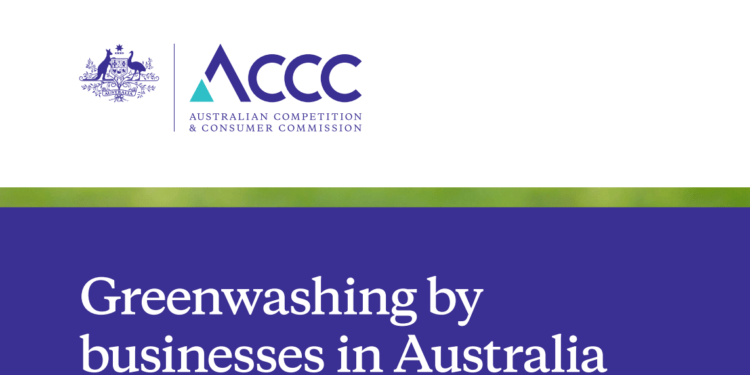The Australian Competition and Consumer Commission (ACCC) conducted an internet sweep (‘the sweep’). The sweep occurred in October 2022 across eight sectors: Energy, Motor vehicles, Electronics, Textiles, Food and beverages. ACCC swept 247 businesses across different sectors. The report titled ‘Greenwashing by businesses in Australia’, released by ACCC indicates that 57% of the companies made sustainability claims that raised greenwashing concerns.
The most prevalent greenwashing claims fell within the eight key categories. First, some businesses made Vague and unqualified claims that used vague terms such as ‘green’, ‘kind to the planet’, ‘eco-friendly’ and ‘sustainable’ without proper explanations.
Some businesses provided informative click-through links that were broken, and others presented outdated and irrelevant information to justify their alleged sustainability practices that, indicated a lack of substantiating information.
In a couple of instances, the absolute claims made by businesses like labelling products or services as ‘100% recyclable’, ‘Made from 100% recycled content’, and ‘Zero emissions’ were found to be false or misleading, because companies were unable to provide clear and robust evidence that the claims were valid. For example, the ACCC noted that companies using even the smallest amounts of plastic in a product they claimed to be 100% plastic free would likely be false or misleading.
Some businesses made comparison claims, like “fewer raw materials”, “generates less waste”, and “lower environmental impact” without any backing from legitimate sources, which prevented consumers from assessing the merits of one product over another sold by other businesses.
Businesses attempting to affect consumers’ purchasing decisions by exaggerating the benefits of their products or omitting negative attributes have also been found to be one of the prevalent practices of greenwashing. For example, one business sourcing most of its products from fossil-fuel-based industries was found marketing its investments in renewable energy projects.
Businesses also made aspirational claims about their environmental goals, including reducing amounts of packaging and achieving Net Zero targets. However, in many instances, goals were either overly general or any progress claimed against aspirational targets needed to be updated or clarified.
The ACCC also expressed concerns about the misleading or confusing use of certifications. For example, the word ‘certified’ was used to describe a whole business when, in fact, only certain products or specific components of products were certified. In addition, some businesses had also created their own certification schemes, which defeated the overall purpose of having a certification system to help consumers distinguish between different products.
Misusing images, logos or symbols could mislead consumers into falsely believing the business or its particular products are backed by certifications of third parties even though the companies did not have the relevant third-party certifications.
The sweep has identified several high-level concerns across the range of industries targeted. As a result, the ACCC will conduct further analysis of these issues and undertake enforcement, compliance, and education activities where appropriate, as per the report.






